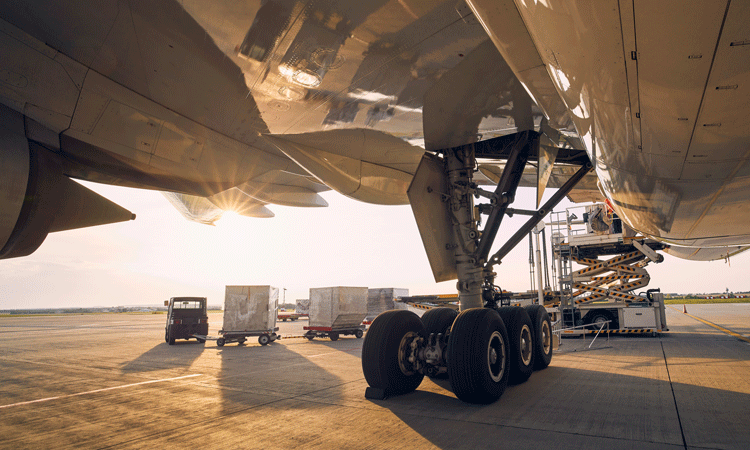The enduring challenges facing ground handling service providers
Posted: 30 March 2022 | Thomas Romig | 1 comment
Thomas Romig, Vice President Safety Security and Operations at ACI, shares his insight into the multifaceted challenges currently facing the ground handling sector, and explains why the interdependent relationship between air operators, airports, and ground handling sector providers is key to solving them.


Across the industry and around the world, ground handling service providers have it tough. It’s not just the operations that are tough, with teams out on the apron working in challenging conditions, in adverse weather, under the pressure of time and operating at night. It’s not just the customer-facing staff having to deal with passengers who are frequently stressed and those who are disruptive or unpleasant. It is the domain of ground handling in general that has it tough.
This may sound strange coming from a representative of the airport community, but it is part of the reality that the aviation ecosystem faces. From the outset, it is important to remember that air operators, airports and ground handling service providers live in a symbiotic relationship – one without the other two cannot serve its purpose. To a certain extent, it could almost be said that ground handlers are the oil in the cogs which keep the aviation industry running smoothly, as they provide the majority of the fundamental services needed to keep passengers and baggage moving through airports and into, and out of, aircraft. They also ensure the smooth running of numerous other critical portions of aviation operations. Of course, some airlines provide some, or all, of the services typically delegated to a ground handler. However, the general trend for a number of years has been to pass on the handling tasks to service providers through contracts.
It is important to remember that air operators, airports and ground handling service providers live in a symbiotic relationship – one without the other two cannot serve its purpose”
Understanding the challenges
Join us live: Shaping the Next Generation of Hold Baggage and Air Cargo Screening
Join us live for an insightful webinar on 11th December at 14:00 GMT, in collaboration with Smiths Detection, as we explore the strategic balance of operational efficiency, regulatory compliance, and sustainability in high-volume security environments.
This session offers a focused look into future-proofing your security strategy.
Key learning points
- Cost Reduction: Strategies to minimize bag travel time while simultaneously reducing operational costs.
- Regulatory Roadmap: Insights into the next wave of regulatory changes and their impact on future investment decisions.
- Sustainable Systems: Practical approaches to building sustainability into security systems and lowering the total cost of ownership (TCO).
- Scalable Solutions: Real-world examples of scalable systems supporting current airport growth and preparing for tomorrow.
Register now for expert insights, case studies, and actionable strategies on operational efficiency!
So why do ground handling service providers have it tough? There are numerous challenges that they face, be they social, economic, operational, safety related, and so on. However, one of the biggest challenges, despite the symbiotic relationship that exists between the three parties, is the fact that ground handlers have a multitude of diverging operational requirements they must always abide by. Air operators have a responsibility to establish requirements for how the ground handler will perform their handling duties associated with a given aircraft, yet these duties are carried out at the airport, for which the airport operator will also have specific operational requirements. Then, multiple air operators will have different variations of the same operational requirement. All these diverging inputs can evidently create some confusion and lack of harmonisation and lead to unsafe and inefficient operations.
To simplify and streamline these requirements, it would then make sense that single standards for operating under and around an aircraft be established, and some do exist, yet they are not adopted and accepted by all air operators. Ground handlers still remain caught in the midst of a multitude of operating requirements with multiple variations for multiple customers in multiple locations. The idea of a series of standard operating procedures for each aircraft type without individual variations based on the colour or branding on the aircraft – which in theory would be simple to achieve – is unfortunately still a long way away from the reality out on the apron.
Lack of standardisation, that is why ground handlers have it tough? Well, that is only one of the challenges which is more in the operational and safety realm.
Social and economic pressures
Another one of the critical challenges remains centered around the social and economic situation of this sector of the industry. The COVID-19 pandemic has compounded the already significant economic pressures applied to ground handlers. Over the past two years, there have been record numbers of personnel put on temporary or long-term furlough programmes, or simply made redundant, across the industry. This has generated an overall reduction in the years of experience available within many organisations, as well as a significant reduction in the capacity to offer services according to defined performance levels. All these factors in turn may introduce potential negative impacts on the safety performance of ground handling activities, as well as the capacity to deliver agreed services to aircraft operators at airports. This in turn can have negative effects on the airport system’s capacity to meet the expected demands, in terms of aircraft movements or passenger numbers.
Ground handlers still remain caught in the midst of a multitude of operating requirements with multiple variations for multiple customers in multiple locations”
Two years of a global pandemic have not helped create a better overall environment for ground handling. In fact, many handling companies are struggling to hire enough staff to cater to the ever-increasing demand. This same issue is equally relevant for a multitude of aviation sectors, as there is a connotation of aviation being an unstable domain, for instance, when taking up a new position.
IN CONVERSATION with Thomas Romig from ACI World
It’s not all doom and gloom
Despite these challenges, collaborative actions across the aviation system, including states and global regulators, are starting to bear fruit. Pre-pandemic, ground handling service providers, in collaboration with air operators and airports, were seeking out innovation and technological developments to move towards more automation, improvements in performance and the use of more sustainable and energy efficient equipment. These technologies will also reduce costs and increase efficiency over time.
There has been significant progress by many ground handlers in the voluntary implementation of robust safety management processes looking to reduce the number of safety events taking place which affect a multitude of stakeholders. Significant efforts in modernisation of training techniques and staff retention have equally been of great importance with positive outcomes across all sectors.
On the regulatory side, both ICAO and EASA have been moving towards the development of a regulatory framework, or as a minimum, processes allowing for oversight of ground handling activities by individual states. This will be an important first step in sustaining the positive trends in the overall levels of safety and performance of this sector, and over time, achieving global operational standardisation.
It is important that the symbiotic relationship that ground handling service providers live in is sustained and nurtured by all three stakeholders through close collaboration, and, by establishing and maintaining a balance across operational, economic, and social requirements. This balance will ensure that the aviation ecosystem continues to thrive, and the overall capacity of the aviation system is maintained to be able to safely meet the future demand of all travellers.
Biography


Four years later, he took up the role of Safety Officer at Genève Aéroport, before becoming the Head of its new Operations Control and Development Department in 2013.
Throughout his time at Geneva Airport, Thomas has kept a strong link with the international regulatory world through ACI, representing the association at EASA and ICAO. He has chaired numerous committees and working groups on behalf of ACI and ACI-Europe as well as championed multiple policy developments for the organisation both in safety and operational domains.
In 2020, Thomas joined ACI in Montreal with a primary focus on the relations with ICAO, and other industry organisations, for future regulatory developments.
The International Airport Summit is open for registration!
Date: 19 – 20 November 2025
Location: JW Marriott Hotel Berlin
At our flagship event of the year, we will dive into the future of airport operations, with expert-led sessions on passenger experience, innovative smart technologies, baggage handling, airside operations, data, security, and sustainability.
This is where global airport leaders come together to share insights, challenges, and real-world solutions.
Limited complimentary passes are available for eligible professionals – first come, first served!



















Thanks for the post. As evident from the name, ground handlers basically deal in services that are required on ground, such as managing aircraft and ensuring smooth flow of traffic at an airport. But in the current situation ground handelrs are facing so many challenges. And this is the perfect post for that.